1. Jell-O Salad at Every Occasion
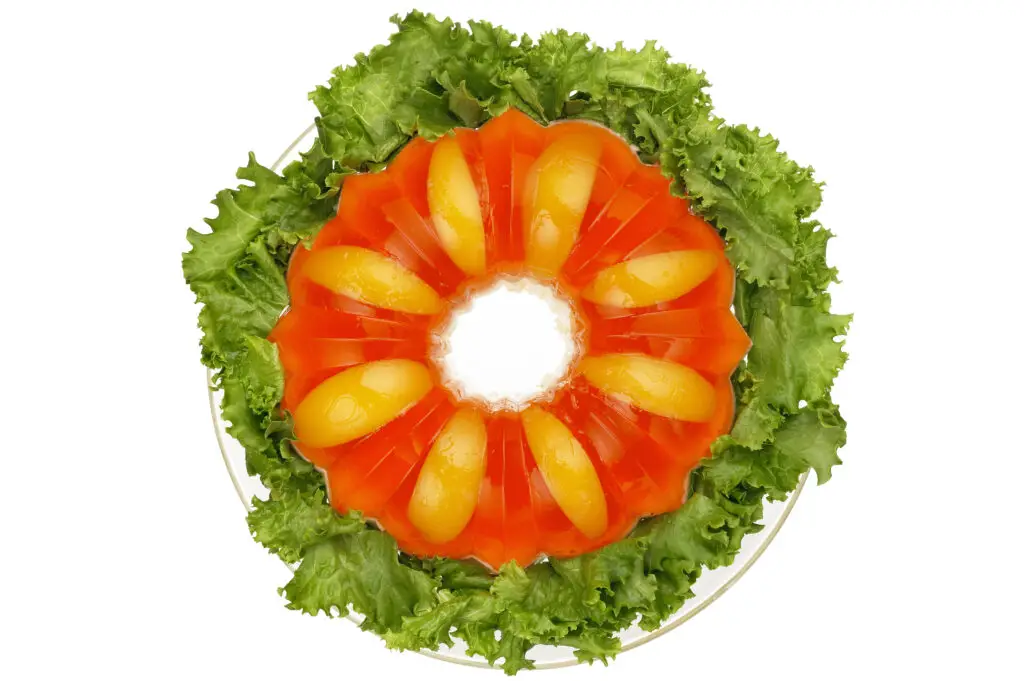
There was something oddly festive about a wobbly, pastel-hued mold sitting in the center of the table, full of suspended fruit, nuts, or—brace yourself—shredded carrots. American grandparents didn’t just serve Jell-O salad; they prized it. Whether it was a church potluck, a summer BBQ, or Thanksgiving dinner, it was always there, shimmering and jiggling like a centerpiece from another planet shares Southern Living.
British grandparents, on the other hand, looked at this with sheer confusion. To them, gelatin belonged firmly in the dessert course and definitely not with mayonnaise or cottage cheese mixed in. “Why is it savory?” was a question likely whispered across the Atlantic. The U.S. obsession made sense to no one but Americans. Still, there was something comforting about watching Grandma unveil a perfectly molded ring of lime Jell-O with pride in her eyes. Even if you didn’t eat it, you admired the craftsmanship says NPR.
2. Plastic Couch Covers

You knew you were in Grandma’s house when your thighs stuck to the plastic during a hot summer afternoon. Those stiff, squeaky plastic covers were meant to preserve the “good” couch beneath—as if one day, a furniture museum would want it in mint condition. The covers crackled when you sat down, smelled vaguely of vinyl, and somehow made you sweat even in an air-conditioned room shares Apartment Therapy.
Across the pond, British grandparents were more likely to throw on a doily or knitted blanket than entomb the furniture in plastic. The whole concept of preserving a couch for guests but never actually removing the covers for them? Baffling. It was all part of the American “keep things nice for company” philosophy, but to Brits, it seemed like furniture you weren’t really allowed to enjoy. And yet, we sat on those noisy covers, making awkward conversation, pretending like this was totally normal says Los Angeles Times.
3. Collecting State Spoons
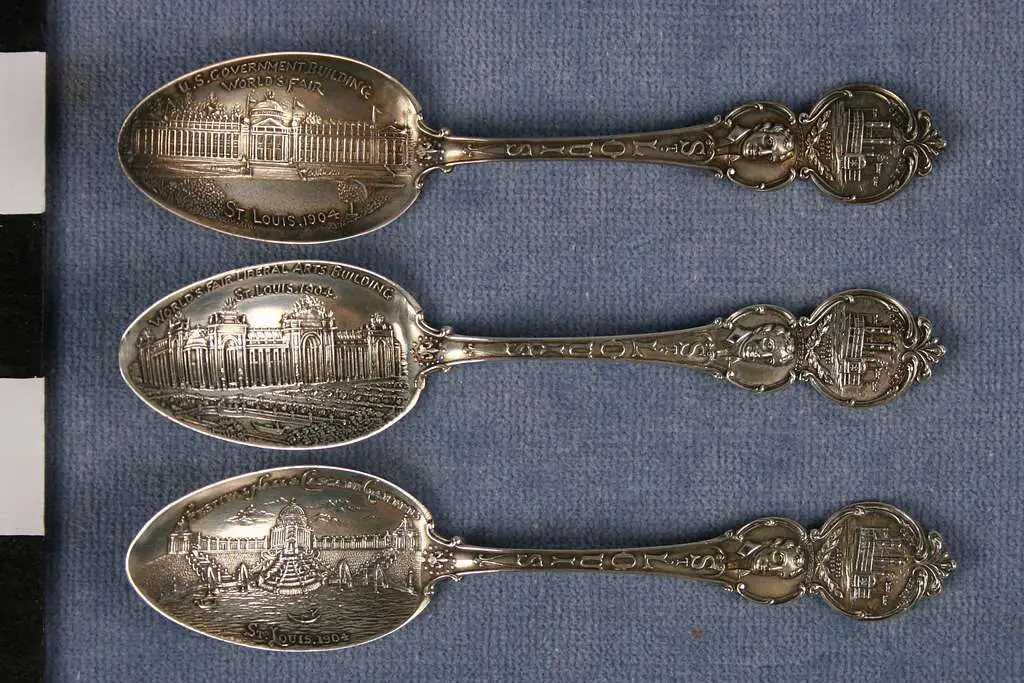
Every trip across the country ended with a tiny, decorative spoon. Hung in a wooden display rack or tucked into a velvet-lined box, these souvenir spoons showed the pride American grandparents took in both travel and tiny trinkets. They were shiny, stamped with state birds or flowers, and utterly impractical for anything other than admiring.
British grandparents might’ve collected china or perhaps had a small shelf of porcelain figurines, but spoons? That seemed like an odd choice. The whole “commemorate your road trip with flatware” trend never made its way across the Atlantic. Still, there was something sweet about it. Each spoon held a memory, a place visited, a mile driven in the family station wagon.
4. TV Dinners on Trays
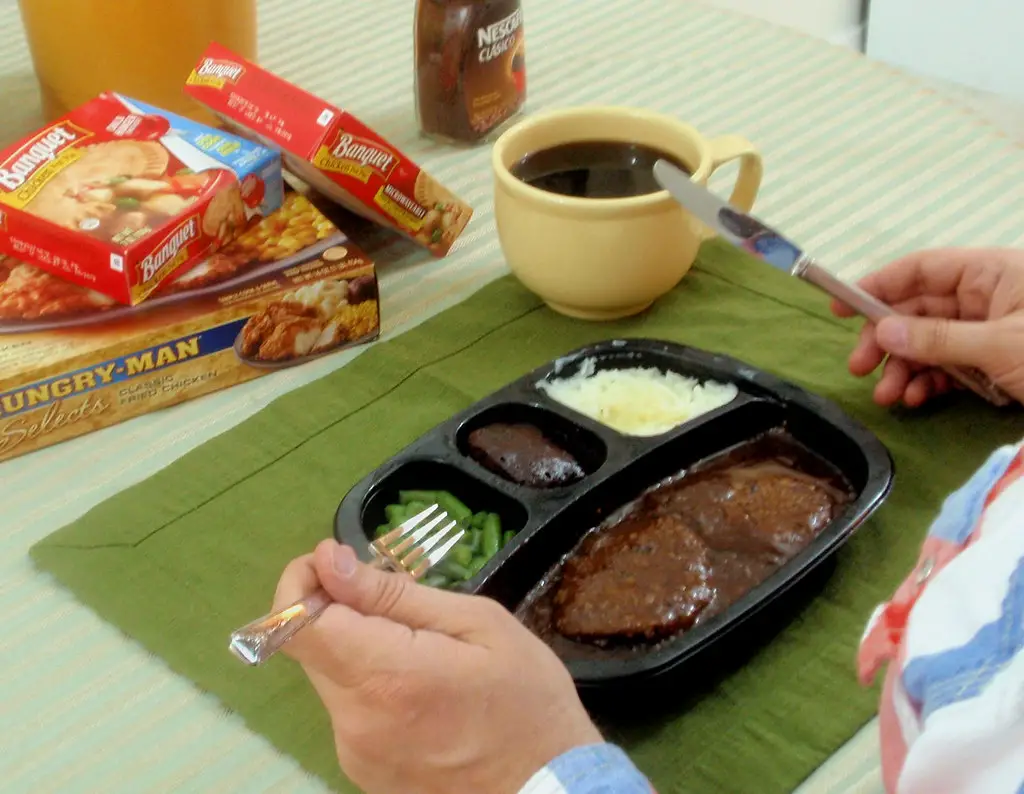
There was a ritual to it: peel back the foil, pop it in the oven, and then sit in front of the television on a tray table while “MAS*H” played in the background. TV dinners felt futuristic and convenient, and grandparents embraced them with gusto—meatloaf, mashed potatoes, and some suspiciously square dessert, all in one tray.
British grandparents, with their roast dinners and real gravy, might have raised an eyebrow at the whole concept. Why eat from a divided tin when you could just use actual plates? But in America, it was all about efficiency, especially during weeknights when no one wanted to cook. Plus, the novelty of eating in front of the TV instead of at the dining table? That was a little rebellion in itself.
5. Clapping When the Plane Landed

It didn’t matter if it was a short flight to Florida or a cross-country journey—if the wheels touched the tarmac, American grandparents clapped. Loud, sincere applause as though the pilot had just performed a magic trick. To them, it was good manners and a show of appreciation.
British grandparents, more reserved by nature, likely cringed at the gesture. Applauding a safe landing felt over the top, even a bit awkward. They preferred a subtle nod or polite thank you to the flight attendant on the way out. But Americans love to show gratitude, and this was just another way to say, “Hey, thanks for not crashing us into the sea.” Odd? Maybe. Endearing? Absolutely.
6. Drive-Thru Everything

From burgers to banking, American grandparents embraced the drive-thru lifestyle with full hearts and empty gas tanks. You didn’t even need to leave your car to grab dinner, deposit a check, or pick up a prescription. The convenience was unmatched, and they loved to brag about it.
British grandparents were likely baffled. A drive-thru pharmacy? How did that even work? The U.K. just didn’t evolve in the same car-centric way. But for Americans who grew up during the suburban boom, staying in the car was part of the appeal. Why walk in when you could roll down the window and get your errands done in under five minutes?
7. Lawn Flamingos and Garden Gnomes

There was a certain whimsy to it: plastic flamingos staked in the front yard or garden gnomes guarding the flower beds. These kitschy decorations were the pride of many American grandparents, who added them with the same care they applied to mowing the lawn.
To British grandparents, garden décor meant stone birds or classic urns. Pink flamingos seemed cartoonish and a little bit tacky. But Americans never took them too seriously—they were meant to bring a smile. It was all about personality and flair, even if it confused the neighbors. And let’s be honest, those flamingos did stand out in a sea of green grass.
8. Tupperware Parties
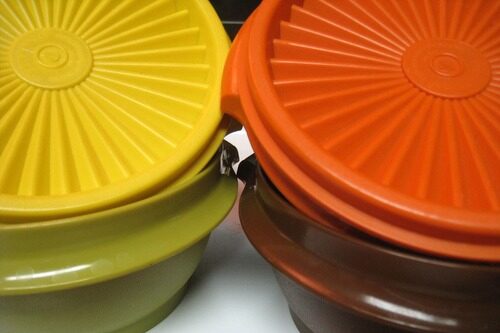
The invitation would arrive, and suddenly Grandma’s living room turned into a full-blown sales floor for burp-seal plastic containers. There were games, prizes, and demonstrations of how airtight a lid could really be. It was part social event, part business opportunity—and yes, you left with a whole new set of mismatched storage containers.
British grandparents had tea parties, not Tupperware parties. The idea of mixing commerce with socializing felt a bit uncomfortable. But American grandparents saw it as a chance to connect and declutter. Plus, who didn’t love watching someone “burp” a lid with flair? The parties may not have made sense to outsiders, but they sure did fill the cupboards.
9. Wearing Patriotic Apparel on Holidays

Come the Fourth of July, American grandparents decked themselves out in red, white, and blue—shirts with flags, hats with stars, even socks with stripes. It wasn’t subtle, and that was the point. Holidays were a chance to show pride, and they leaned in with full enthusiasm.
British grandparents, accustomed to more subdued expressions of national pride, might’ve found it a bit loud. A polite wave of a flag during a parade was one thing, but a whole outfit? That was a different story. Still, it was hard not to admire the commitment. The fashion choices may have raised eyebrows abroad, but stateside, they were a badge of honor.
10. Hanging Out at the Mall

For many American grandparents, the mall wasn’t just a place to shop—it was a destination. They walked laps in the morning, grabbed a coffee at the food court, and maybe picked up a new pair of slacks at JCPenney. It was climate-controlled, clean, and full of people to chat with.
British grandparents usually opted for the high street or the local market. The concept of spending hours inside a giant shopping center just for fun didn’t really compute. But in sprawling suburbs, the mall was one of the few social hubs left. And honestly, who didn’t enjoy a cinnamon roll and some window shopping?
11. Watching QVC for Hours

The jewelry sparkled. The hosts were impossibly enthusiastic. And American grandparents watched every moment of it like it was an awards show. Whether or not they bought anything, QVC felt like company in the room.
British grandparents, more familiar with catalogues than on-air pitches, found the whole spectacle a bit much. Why would someone narrate a bracelet for ten minutes straight? But American grandparents found joy in the presentation—and occasionally picked up a ceramic angel or a new vacuum in the process. It wasn’t just shopping. It was entertainment.
12. Having a China Cabinet Nobody Was Allowed to Touch
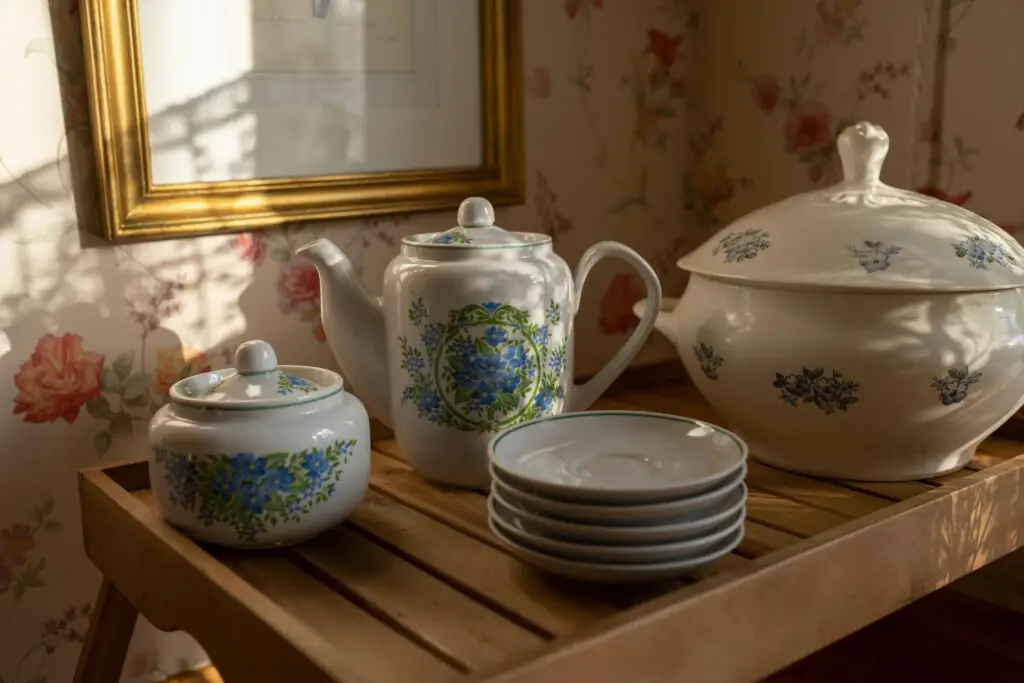
Every American grandparent seemed to have one: a towering glass cabinet filled with delicate plates, teacups, and figurines. It was always pristine, always locked, and always off-limits. The china inside was for “special occasions” that never actually came.
British grandparents had their own heirlooms, sure, but they were often used, not just displayed. The idea of owning a full set of dishes you’d never eat off of seemed extravagant. But for American grandparents, it was about tradition, legacy, and a little bit of showing off. Even if those plates gathered more dust than memories, they were part of the home’s soul.
